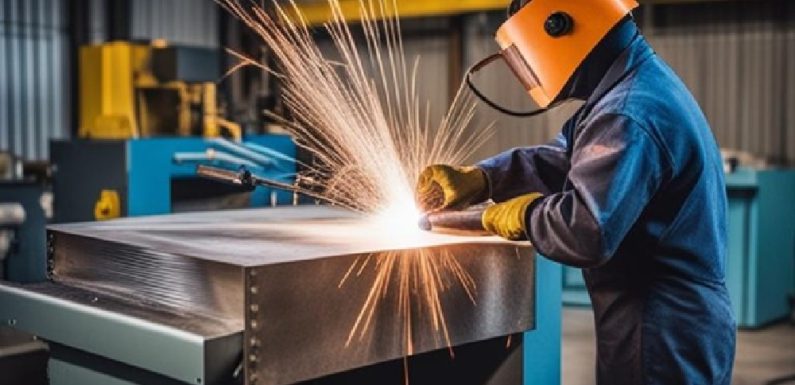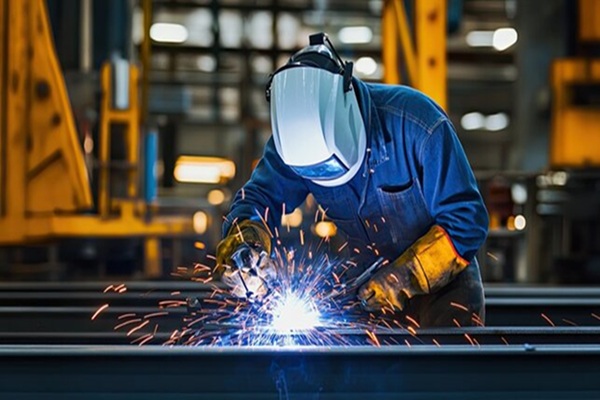
Starting a sheet metal welding business that focuses on specialized repairs and maintenance is a promising way to secure a steady income stream. Numerous sectors, including industry, agriculture, and construction, rely significantly on infrastructure, machinery, and equipment that regularly require maintenance.
Specializing in repairs allows you to carve out a niche, reduce competition, and build long-term, profitable client relationships.
Why Specialize in Welding Repairs?
Steady Demand Across Industries
Metal welding services are continuously needed for maintenance and repairs in sectors including industry, construction, and agriculture. Whether it’s fixing broken machinery, patching up metal structures, or performing routine maintenance, the demand for skilled welders remains steady. This demand can provide a reliable, ongoing income.
Less Competition, Higher Profits
Although there are many companies that offer general welding services, very few only concentrate on repair and maintenance. By specializing, you differentiate your business from others, positioning yourself as the expert for urgent repair jobs. Particularly for intricate or urgent tasks, these specialist services sometimes fetch greater prices.
Long-Term Client Relationships
In contrast to one-time undertakings, maintenance and repairs need for continuous effort. Because infrastructure and machinery require routine maintenance, you will have the chance to establish enduring connections with customers who depend on your services. This repeat business ensures a steady cash flow and provides the potential for growth as your client base expands.
Key Steps to Starting Your Welding Repair Business

Assess Skills and Equipment Needs
The first step is to evaluate your welding expertise and decide which types of repairs you’ll specialize in. Common areas include agricultural equipment, industrial machinery, or construction infrastructure. Each niche requires different tools, so consider investing in a range of welding machines (MIG, TIG, or Stick), plasma cutters, and portable equipment for on-site jobs.
Research Your Target Market
Understand which industries dominate your local area and where there’s the most demand for repairs. If you’re in an industrial hub, there may be high demand for machinery maintenance, while rural areas may require agricultural repairs. Tailoring your services to local needs helps you secure steady work.
Get Certified and Licensed
Depending on your location, you may need certifications to perform welding work. Welding certifications demonstrate your skill level, which can help attract clients. Also, ensure that you obtain the necessary business licenses, insurance, and safety certifications to protect both you and your clients.
Invest in Marketing and Networking
Even in a specialized field, effective marketing is key to attracting clients. Network with local manufacturers, contractors, and suppliers who might need repair services. Word-of-mouth recommendations, an active social media presence, and a quality website may all aid in the expansion of your company. To grow your network even further, go to industry events and join regional trade associations.
Offer Emergency Repair Services
Offering 24/7 emergency repair services can set your business apart. Industries such as construction and manufacturing rely on quick fixes to minimize downtime, and being available for emergency jobs can justify higher rates. This flexibility can help secure profitable projects and build client loyalty.
Building a Reputation for Quality
Your reputation is crucial in the welding repair industry. Clients expect timely, high-quality work, and consistently delivering on these expectations is key to long-term success. Prioritize clear communication, reliability, and craftsmanship in every project. Building expertise in specific repairs, such as structural welding or custom metal fabrication, can further boost your credibility and attract higher-paying jobs.
As your business grows, consider hiring additional skilled welders or expanding your services to cover more industries. By doing this, you may take on bigger projects and make sure you’re ready to meet rising demand.
Conclusion
Starting a sheet metal welding business focused on repairs and maintenance offers significant potential. By specializing in repairs for machinery, equipment, and infrastructure, you tap into a consistent demand across various industries. Understanding your market, making the appropriate equipment purchases, and cultivating enduring customer connections via superior work are the keys to success. With a solid business plan and dedication, a welding repair business can provide long-term profitability and growth.

